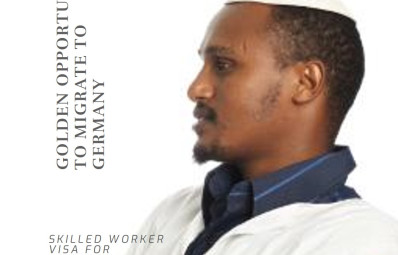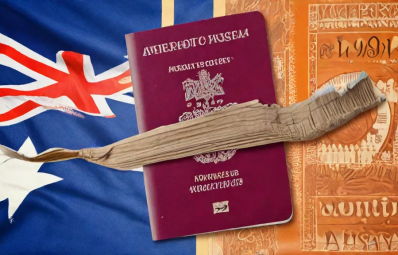Posted At: Feb 14, 2024 - 198 Views

Public Universities
Public universities in Austria are funded by the government and are generally free for students from the EU/EEA and Switzerland. Students from other countries have to pay a tuition fee of 726.72 EUR per semester, plus a student union fee of 20.20 EUR per semester. However, there are some exceptions and exemptions for certain cases, such as holders of scholarships, participants of exchange programs, students from certain countries, etc. You can find more details on the tuition fee regulations here.
Public universities offer a wide range of courses in various fields, such as arts, humanities, social sciences, natural sciences, engineering, medicine, law, etc. Some of the public universities in Austria are:
University of Vienna: The oldest and largest university in Austria, founded in 1365. It has 15 faculties and four centers, offering more than 180 degree programs. The admission requirements vary depending on the program, but generally include a secondary school leaving certificate, proof of German or English language proficiency, and an entrance exam or interview for some programs. You can find more information on the admission process [here].
Graz University of Technology: A leading institution for science and engineering, founded in 1811. It has seven faculties, offering more than 50 degree programs. The admission requirements include a secondary school leaving certificate, proof of German or English language proficiency, and a supplementary examination in mathematics, physics, and chemistry for some programs. You can find more information on the admission process [here].
University of Innsbruck: A comprehensive university with a strong focus on research, founded in 1669. It has 16 faculties and 80 institutes, offering more than 120 degree programs. The admission requirements include a secondary school leaving certificate, proof of German or English language proficiency, and an entrance exam or interview for some programs. You can find more information on the admission process [here].
The admission requirements for international students in Austria depend on the type and level of the programme you want to apply for, as well as your country of origin and previous education12. Generally, you will need to provide the following documents:
- Proof of nationality (photocopy of your passport or identity card)
- A secondary school leaving certificate that entitles you to admission to university studies in your home country
- German language proficiency (if the programme is taught in German) or English language proficiency (if the programme is taught in English)
- A completed application form for the programme of your choice
- A transcript of records from your previous studies (if applicable)
- A CV and a letter of motivation (if required by the programme)
- A proof of payment of the application fee (if applicable)
Some programmes may have additional requirements, such as entrance exams, interviews, portfolios, etc. You should check the specific requirements for your chosen programme and university on their websites or contact their admissions office for more information. You can also use the Studyfinder database to explore the available programmes and apply online.
Please note that the application deadlines may vary depending on the programme and the institution. You should apply as early as possible to secure your place and avoid any delays in the visa process. 🙌
Universities of Applied Sciences
Universities of Applied Sciences (UAS) in Austria are institutions that offer practice-oriented and interdisciplinary education in various fields, such as business, engineering, health, social work, media, etc. UAS are entitled to charge tuition fees, which vary depending on the institution and the program. For more details, you can contact the UAS of your choice directly.
UAS offer bachelor’s, master’s, and doctoral degree programs, as well as continuing education courses. Some of the UAS in Austria are:
FH Campus Wien: The largest UAS in Austria, founded in 2001. It has six departments, offering more than 60 degree programs. The admission requirements include a secondary school leaving certificate, proof of German or English language proficiency, and an admission test or interview for some programs. You can find more information on the admission process [here].
FH Joanneum: A UAS with a strong international orientation, founded in 1995. It has 12 departments, offering more than 40 degree programs. The admission requirements include a secondary school leaving certificate, proof of German or English language proficiency, and an admission test or interview for some programs. You can find more information on the admission process [here].
FH Salzburg: A UAS with a focus on innovation and creativity, founded in 1995. It has four departments, offering more than 30 degree programs. The admission requirements include a secondary school leaving certificate, proof of German or English language proficiency, and an admission test or interview for some programs. You can find more information on the admission process [here].
Private Universities and University Colleges of Teacher Education
Private universities and university colleges of teacher education in Austria are institutions that offer specialized and high-quality education in fields such as arts, music, theology, education, etc. They are funded by private sources and are entitled to charge tuition fees, which differ from one institution to another. You can contact the institution of your choice directly for more details.
Private universities and university colleges of teacher education offer bachelor’s, master’s, and doctoral degree programs, as well as continuing education courses. Some of the private universities and university colleges of teacher education in Austria are:
MODUL University Vienna: A private university that specializes in tourism, hospitality, sustainability, and business, founded in 2007. It offers six degree programs and two continuing education programs. The admission requirements include a secondary school leaving certificate, proof of English language proficiency, and an online assessment or interview for some programs. You can find more information on the admission process [here].
Sigmund Freud University Vienna: A private university that focuses on psychotherapy, psychology, medicine, and law, founded in 2005. It offers 13 degree programs and four continuing education programs. The admission requirements include a secondary school leaving certificate, proof of German or English language proficiency, and an entrance exam or interview for some programs. You can find more information on the admission process [here].
Kirchliche Pädagogische Hochschule Wien/Krems: A university college of teacher education that provides education for teachers of Catholic religion, founded in 2007. It offers four degree programs and two continuing education programs. The admission requirements include a secondary school leaving certificate, proof of German language proficiency, and an entrance exam or interview for some programs. You can find more information on the admission process [here].
Scholarships
There are various scholarships available for students who want to study in Austria, depending on their nationality, academic performance, financial need, etc. Some of the scholarships are:
Erasmus+: A European Union program that supports mobility, cooperation, and innovation in education, training, youth, and sport. It offers grants for students who want to study or do an internship in another European country. You can find more information on the Erasmus+ program [here].
OeAD: The Austrian Agency for International Cooperation in Education and Research. It offers scholarships for students from developing countries, Eastern Europe, and Central Asia who want to study or do research in Austria. You can find more information on the OeAD scholarships [here].
Marshall Plan Foundation: A foundation that promotes academic and cultural exchange between Austria and the United States. It offers scholarships for students from both countries who want to study or do research in the other country. You can find more information on the Marshall Plan Foundation scholarships .
In Austria, English and German are the languages of instruction. If you’re looking to study in any of the academic institutions here, you might need to prove language proficiency by taking standardized tests, such as TOEFL, IELTS, and Duolingo for English. Depending on the institution and the language of instruction for your program, you might also have to prove your language proficiency by submitting ÖSD for German.






